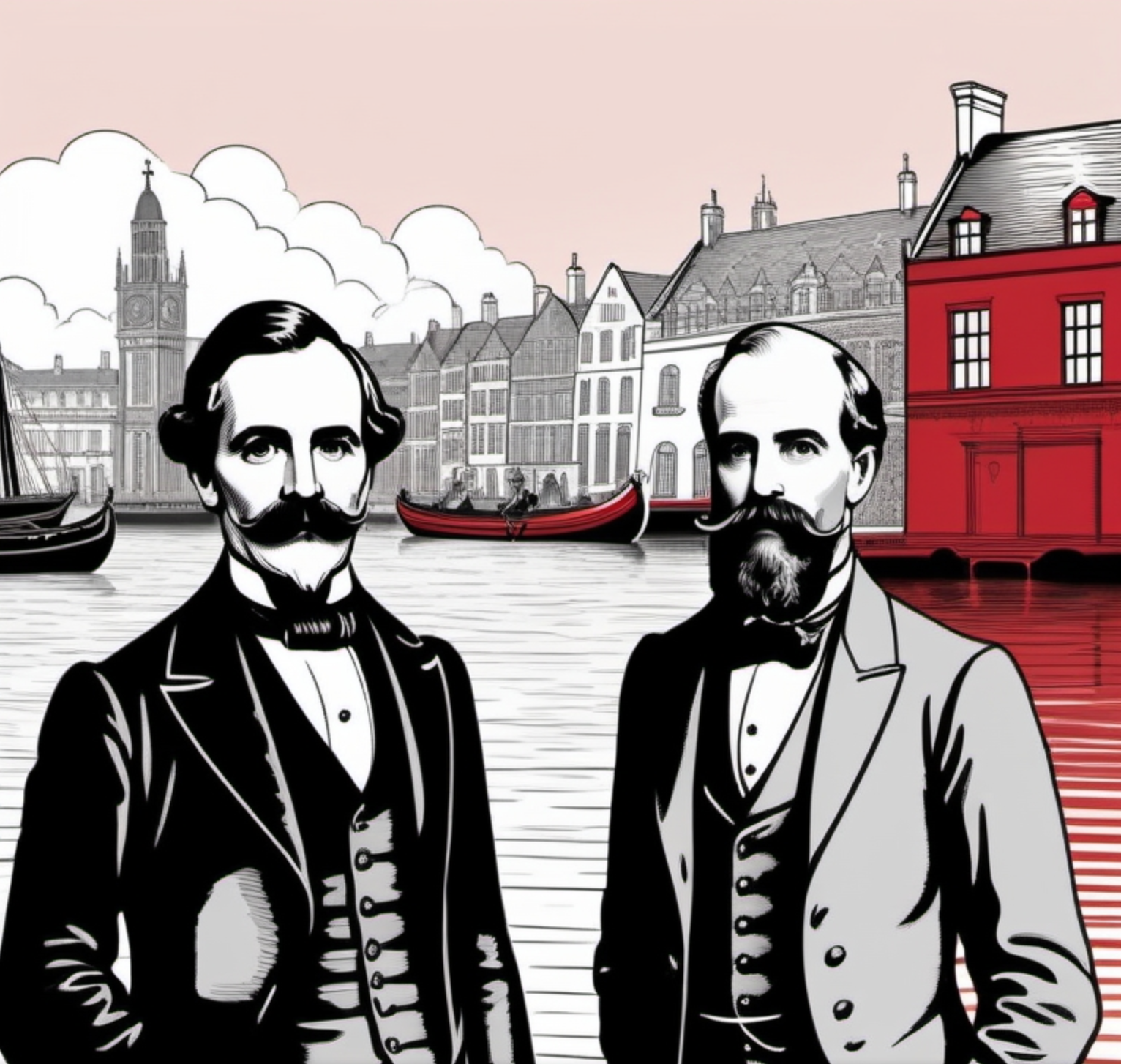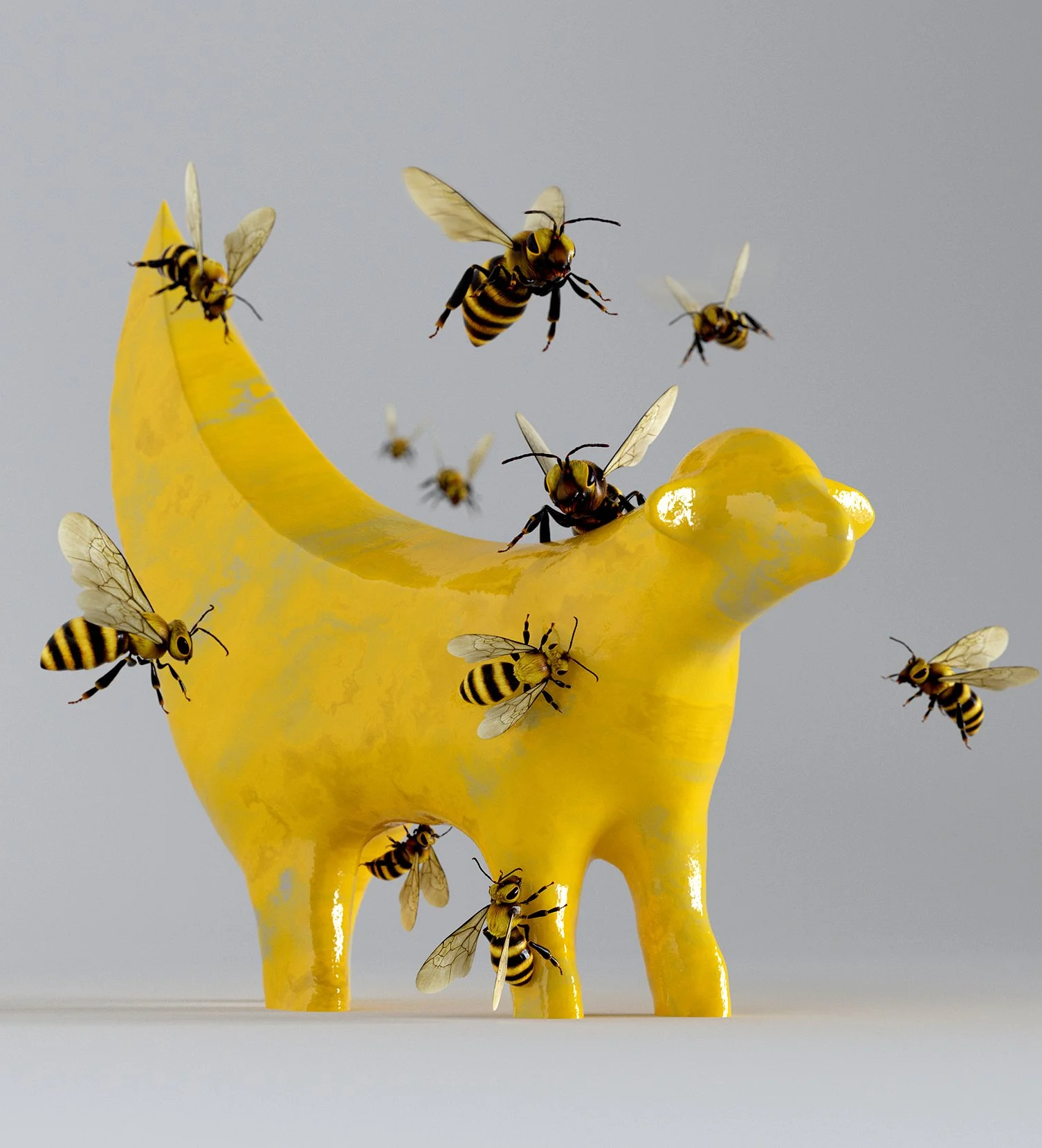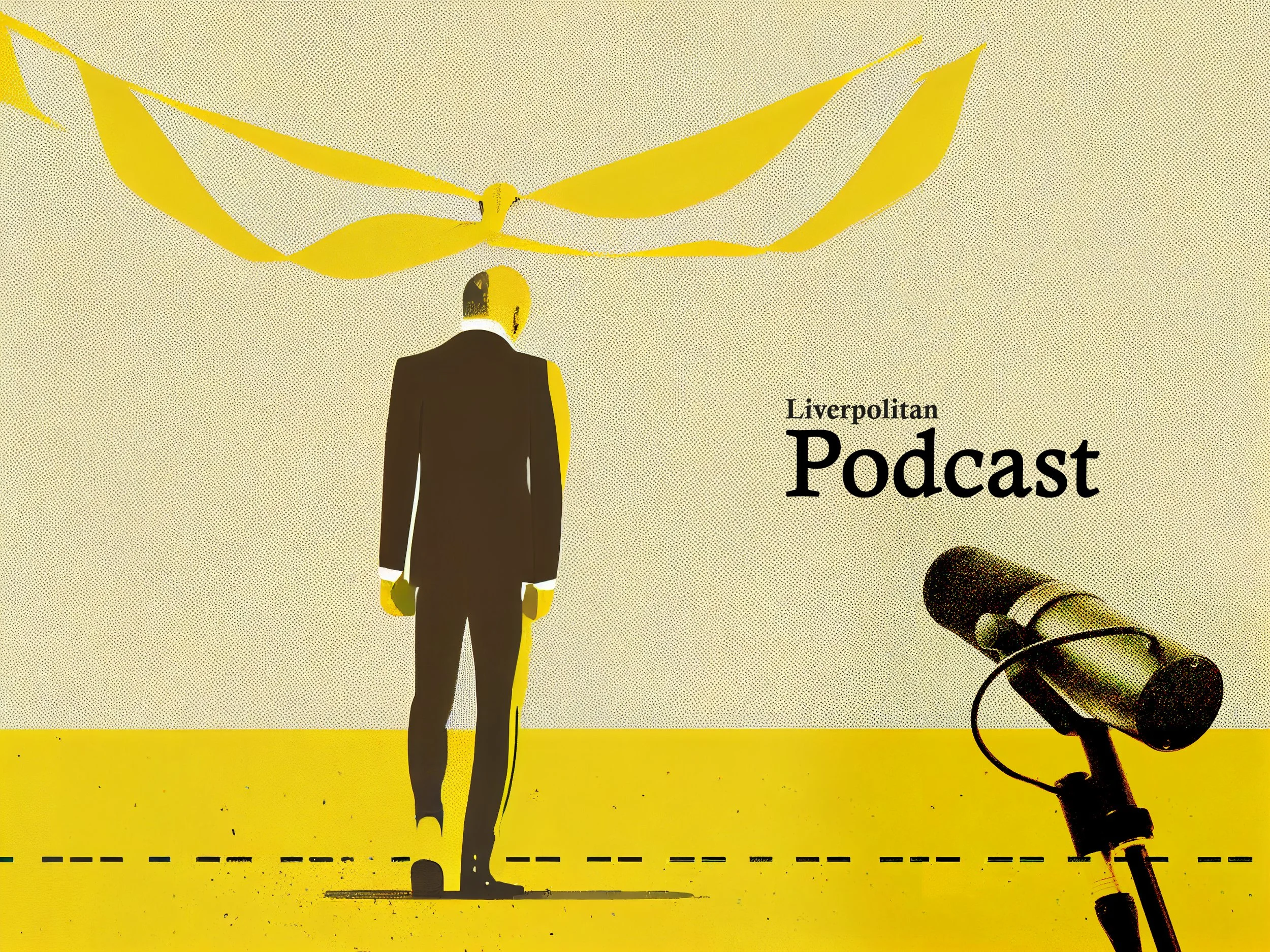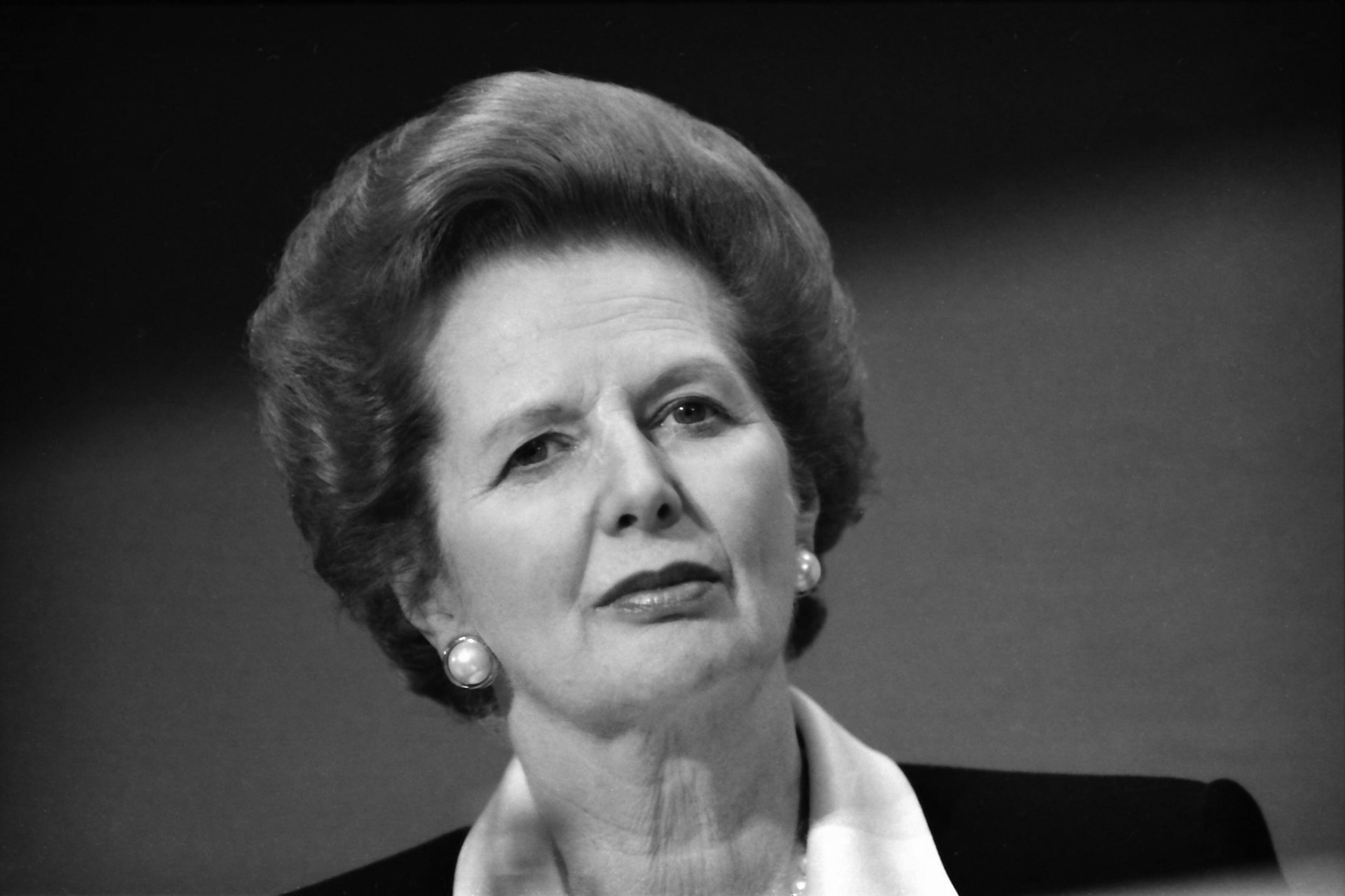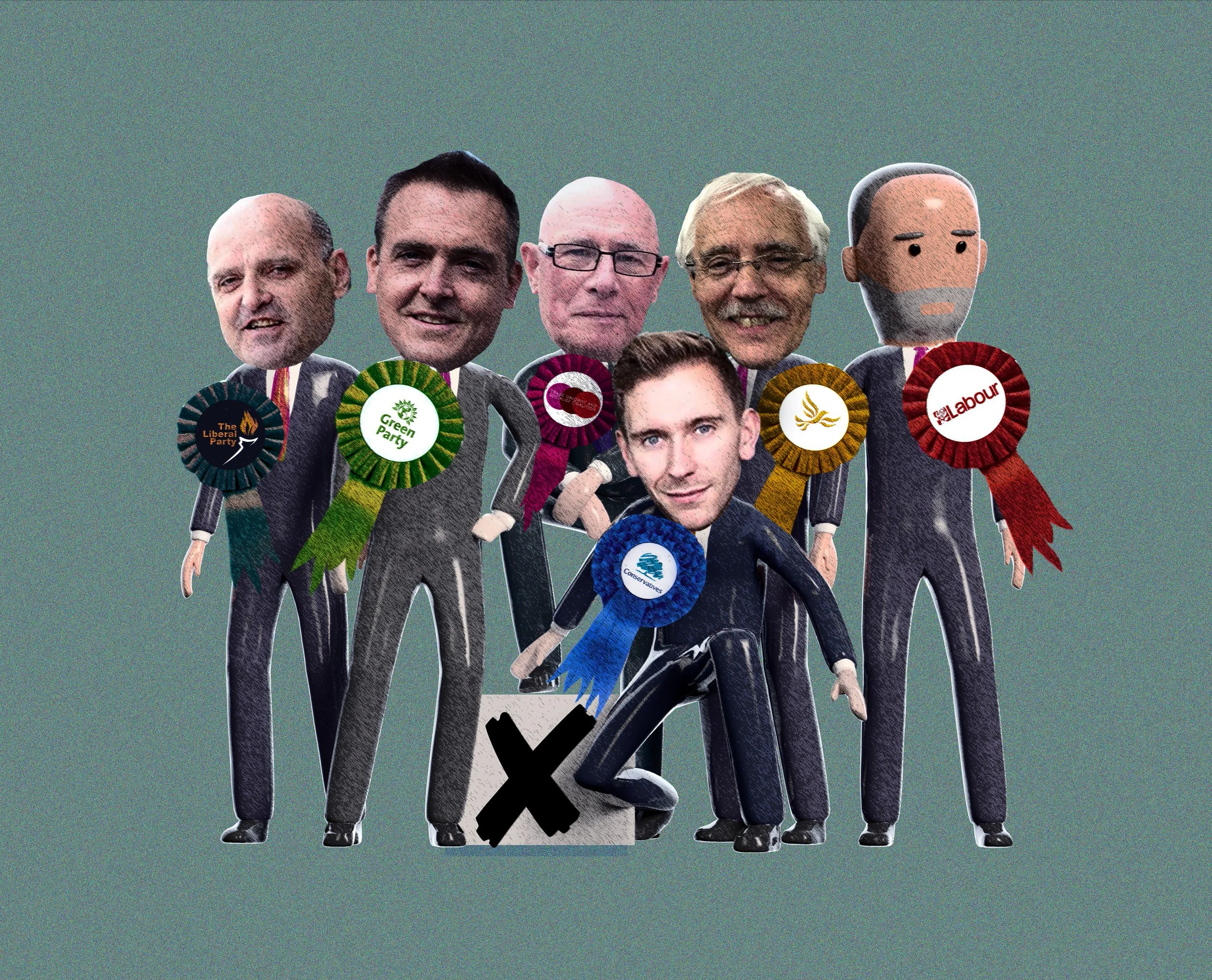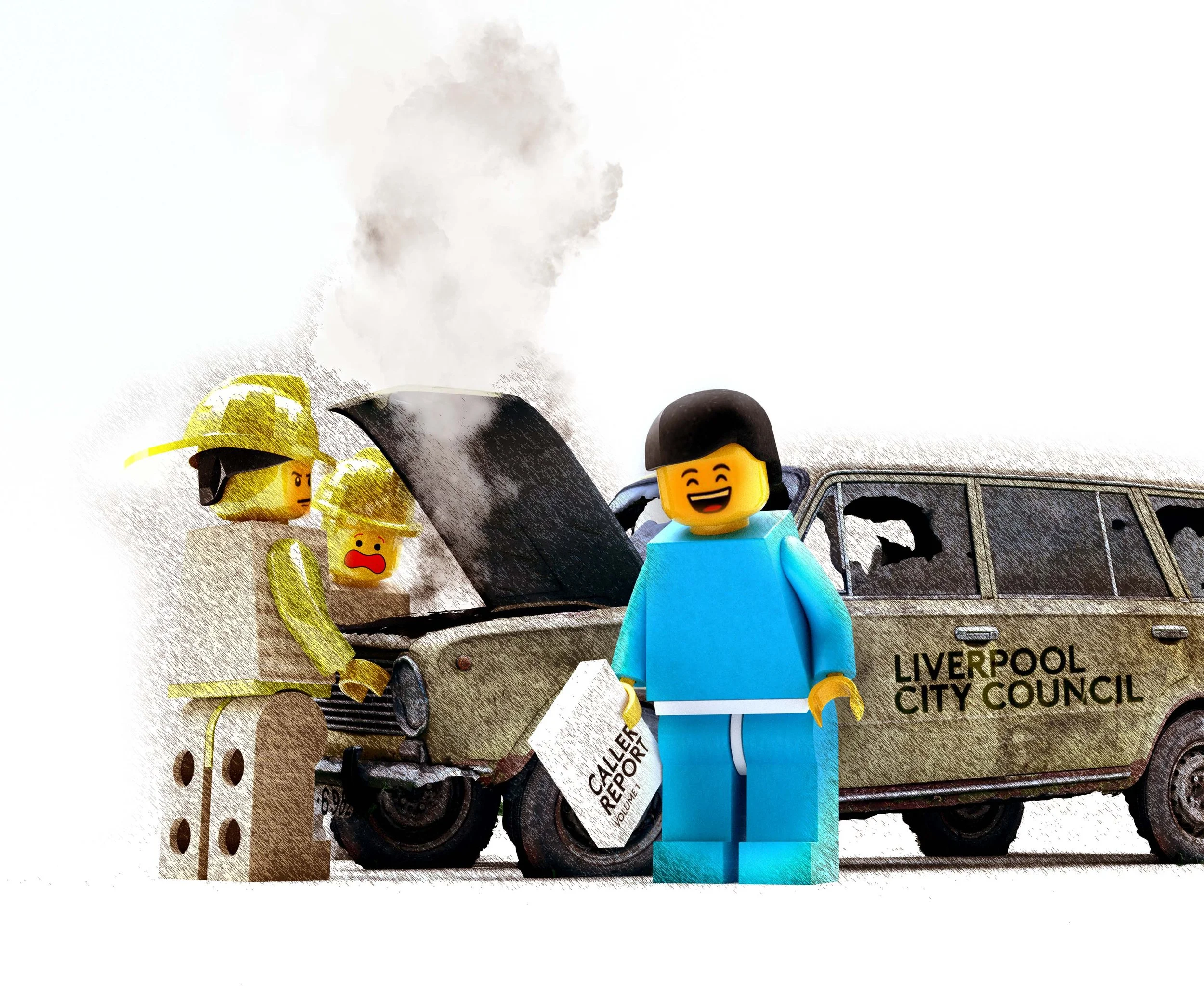Recent features
Pact! What Pact? An Insider’s View on the Lost Battle to Defeat Labour
In the run-up to the 2023 Local Elections in Liverpool, three men working in the shadows, tried to corral the opposition parties into a pact capable of doing some serious damage to Labour at the polls. But in the face of factional intransigence, personality clashes and party ambitions it was doomed to failure. This is the inside story of that failed mission told by one of those men.
Jon Egan
In the run-up to the 2023 Local Elections in Liverpool, three men working in the shadows, tried to corral the opposition parties into a pact capable of doing some serious damage to Labour at the polls. Described as an exercise in herding cats, the enterprise was ultimately doomed to failure, as factional intransigience, personality clashes and party ambitions took hold, before the electorate then delivered the killing blow. This is the inside story of that failed mission told by one of those men, political consultant, Jon Egan.
“Why are we doing this?” is a question that former BBC Radio Merseyside broadcaster, Liam Fogarty and I have been asking ourselves on and off for more than twenty years.
Even before our involvement in the now largely forgotten Liverpool Democracy Commission, we have been kept up at night wondering how to fix Liverpool's broken civic democracy. Years pumped into a losing battle, the odds very much against us. Have we been wasting our time?
The context for the latest phase of anguished introspection was this year’s local elections in Liverpool which, as you may have noticed, returned Labour to power with an increased majority on the City Council. Before explaining the efforts that Liam, myself and Stephen Yip, a former City Mayor candidate and founder of the charity, KIND, made to avert this seemingly predestined eventuality, it’s worth taking the time to fully comprehend and meditate upon the extraordinary fact of Labour’s victory.
There is no simple or rational explanation for Labour’s achievement, although the campaigning skills of my former Labour Party colleague and strategist, Sheila Murphy need to be duly recognised. The Labour campaign was a brilliantly executed masterclass in misdirection, diversion and manipulation worthy of the illusionist, Derren Brown - wiping the collective memory of the city’s voters and convincing them that their party bore absolutely no responsibility for the endemic chaos, waste, corruption and ineptitude of the last ten years. This election, apparently, had little to do with how a struggling city, effectively governed by colonial administrators, was going to put its house in order. No, it turns out the script was the old familiar one about sending a message to the city's historic arch-nemesis - The Tories.
The result, I suppose, proves precisely how difficult it is for people to overcome addictive and self-harmful habits like voting Labour in Liverpool. Maybe what the city needs is not so much new councillors, but counselling.
‘The Labour campaign was a brilliantly executed masterclass in misdirection, diversion and manipulation worthy of the illusionist, Derren Brown.’
In The Myth of Sisyphus, the writer Albert Camus defined the absurd as the irreconcilable gulf that separates human aspirations from the world’s predisposition to thwart them. The tragic image of Sisyphus struggling to roll his enormous boulder to the top of the hill, already sensing the futility of his labours against the forces of gravity, is an apt metaphor for the investment in time that Liam and myself have made in initiatives, campaigns and conversations undertaken over many years in the hope of making Liverpool’s politics function normally. So if the narrative of this election campaign carries the darkly comic resonances of dramatists, Beckett and Ionesco, and their Theatre of the Absurd, then this is not literary pastiche, but rather the perfect paradigm for Liverpool politics. And in that spirit, it seems appropriate to start not at the beginning, but at the end.
One of the most inexplicable aspects of the election result, was the way that the defeated parties far from despairing at the loss of an historic opportunity, were to varying degrees seemingly satisfied (or at worst only mildly disappointed) with their less than modest achievements. For the Liverpool Community Independents getting only three of their cohort re-elected was at least ‘a springboard’ from which to progress. For Green Party Leader, Tom Crone, “bitter disappointment” extended only as far as lamenting the loss of one target ward (Festival Gardens) by a single vote.
For Richard Kemp, the eminence grise of Liverpool Liberal Democracy, the pitiful addition of three councillors, would give his party “plenty of time for reflection on how the council should work, and where the city should be going.” One wonders how after four decades as a City Councillor, Richard was still trying to figure out these rather elementary conundrums, before he finally decided to fall on his sword and announce his long anticipated retirement as party leader.
So let’s rewind to the beginning, or at least the beginning of Act 2. Act 1 being the heroic, but ultimately doomed campaign by Stephen Yip, to be elected as City Mayor in 2021.
Running a surprisingly close and creditable second to Labour’s Joanne Anderson , Yip’s undoing was the stubborn refusal of Green Party Leader, Tom Crone and the ubiquitous Kemp to stand aside to allow for the possibility of deliverance from a disgraced and discredited Labour administration. The 2021 election seemed, at the time, to be a decisive “never again” moment, with penitential expressions of regret from Liberal Democrats and Greens and pledges to learn the lesson of fractured opposition.
Like trying to roll a rock up a hill. Now more than ever, Liverpool’s opposition parties needed to master the alien vernacular of co-operation.
So to Act 2
Following the publication of the Caller Report in 2021 it was decreed that Liverpool should abandon the baroque and inscrutable election-by-thirds system, and instead adopt an all-out election on new boundaries with the majority of councillors to be elected from single member wards. Now more than ever, Liverpool’s opposition parties needed to master the alien vernacular of co-operation. Seemingly unable to conduct conversations between themselves, the task of scoping the opportunities for an electoral pact fell to myself, Stephen Yip and Liam Fogarty. Having manoeuvred the boulder to within inches (well maybe a couple of hundred metres) of the summit in 2021, we felt that one more effort was something we owed both to ourselves and the people of Liverpool. Far from delivering the new dispensation promised following her election, the era of Anderson 2.0 (Joanne) was notable mainly for its dismal continuity - a botched energy contract costing the city millions, hundreds of millions more written off in uncollected tax and rates, revelations concerning councillors dodging parking fines and extended roles for Government Commissioners taking responsibility for even more substandard and failing services.
The process of encouraging political and electoral co-operation between Liverpool’s opposition factions began with a discrete gathering at Richard Kemp’s house in the summer of last year. Treated to copious quantities of sausages and dips, a generally constructive exchange with Richard and his Lib Dem colleague, Kris Brown, concluded with a suggestion that Liam attend their upcoming policy conference to raise a few issues and provide an outsider perspective on the challenges of the upcoming election. Both from this gathering and the subsequent conference, we sensed a distinct lack of enthusiasm for the idea of any form of electoral pact. If this was to happen, pressure rather than polite persuasion might need to be applied.
By the end of the year, we had started informal conversations with friends and contacts within the other three opposition groups - The Liberal Party (an eccentric relic from the pre-Alliance / Lib Dem era sustained in Liverpool through the hyperactive exertions of its charismatic talisman, Cllr Steve Radford), the Liverpool Community Independents (a party formed by dissenting former Labour councillors primarily disillusioned by cuts and corruption) and the Green Party. With the prospect of another squandered opportunity on the horizon, we resolved to take the decisive step of inviting the leaders to a more formal gathering hosted by Stephen Yip at the HQ of his charity, KIND. The tactical approach was to corral the three most willing participants into an agreement and then publicly challenge or shame the Liberal Democrats to come on board.
‘It began with a discrete gathering at Richard Kemp’s house in the summer of last year, where we were treated to copious quantities of sausages and dips.’
Eschewing sausages for club biscuits (salted caramel flavour), the more business-like ambience of the gathering cut straight to the quick. Without an agreement from opposition parties (all of whom occupied terrain to the left of the centre) we would be facing the prospect of another four years of Labour misrule. Apart from pointing out the mutual benefits of a pact, we offered to provide whatever practical, organisational and campaigning resources we could muster from the networks created during Stephen Yip’s mayoral campaign. Admittedly, these were no match for the Labour legions, but we believed they could help the disparate groups to sharpen core messages, target more efficiently and raise the quality and potency of communication collateral. These resources were conditional on the reality of a pact and a clear indication that its participants were putting city before party.
From the outset the Liberals and Community Independents were fully and unequivocally committed to the principle and practicalities of a pact. For Tom Crone and the Green Party, the proposition was clearly more problematic. Promising to take the idea away for "consideration", we were left with an uneasy sense that history was repeating itself. It was unclear at the time, and indeed still is, by what means of mysterious convocation, the Liverpool Green Party reaches its decisions. With Tom intimating that the national party was instructing them to field the maximum possible number of candidates, the sad implication was that regime change in Liverpool was less of a priority than adhering to the diktat from on high. After several days of radio silence, I was tipped off that Tom would be attending a film event at St Michael's church, and it might be a useful opportunity to see how things were progressing. Our conversation, sadly, revealed that they weren't, and that even a three party pact was becoming an unlikely, if not entirely illusory, possibility.
Stephen Yip's description of our undertaking as an exercise in herding cats was suddenly complicated by the unexpected arrival of a much more exotic species defying all known zoological and political categorisations. The first in a series of audiences with hotelier and property developer, Lawrence Kenwright, took place in late December in the sepulchral gloom of the Alma de Cuba bar, formerly St Peter's church. The bar had been the venue for a series of revivalist-style rallies at which Kenwright had railed against council corruption, presenting himself as the figure-head for a new, popular movement called Liberate Liverpool, that would sweep aside the cliques and cabals that had brought the city to its current parlous state.
‘It was unclear at the time, and indeed still is, by what means of mysterious convocation, the Liverpool Green Party reaches its decisions.’
I was deputed to conduct the initial conversation, that provided a fascinating insight into Kenwright's character and motivation, the history of his relationship with the City Council and Mayor Joe Anderson, and the ambitions underpinning his political project. Kenwright's almost visceral determination to unseat Labour was evident; what was less clear was his precise role in the project, and the means and method by which it was to be achieved.
Whilst it was easy to understand the motivations behind Liberate Liverpool, and its attraction as an antidote to an out of touch and self-serving politics, it was difficult to believe that it offered any kind of remedy. Symptoms are not cures, and Liberate Liverpool’s attraction for cranks, conspiracists and far-right interlopers was perhaps an inevitable consequence of its febrile genesis and almost millenarian rhetoric. Some good and sincere people answered the call only to be sent into battle with the campaigning equivalent of peashooters and water pistols. At a subsequent meeting (accompanied this time by Liam Fogarty and ex-Labour Councillor Maria Toolan), we embarked on what we thought was a subtle policy of dissuasion, politely pointing out the inherent flaws of a campaign targeting "people who don't vote" and relying almost exclusively on social media, only to be accused by a Kenwright acolyte of "disrespecting Lawrence."
Our approaches were an attempt to scope the albeit remote possibility of identifying suitably vetted independent candidates who could be assumed into a broader-based Clean-Up Coalition. It is an indicator of our desperation that this hope was ever entertained.
‘We embarked on a subtle policy of dissuasion, politely pointing out the inherent flaws of a campaign targeting "people who don't vote" only to be accused by a Kenwright acolyte of "disrespecting Lawrence."'
As February rolled into March, our efforts became simultaneously more modest and more desperate. Following advice from a sympathetic insider, we were advised to bypass Kemp and re-pitch the idea of an electoral pact to the Lib Dems through the party's former leader and campaign supremo, Lord Mike Storey, who we later discovered was to stand as a candidate in Childwall. Alas Stephen Yip’s conversation with Storey was even more emphatically negative than the sausage-gate soiree with Kemp months earlier.
It was clear we needed to explore more pragmatic alternatives. If not a city-wide pact, perhaps a nod and a wink understanding to avoid actively campaigning in each other's target seats? Maybe also an agreement around some core commitments to improve transparency and accountability, combat corruption and restore public confidence in the City Council? Initially, Richard Kemp sounded refreshingly and surprisingly up for it, but with the fatal complication that some of their target seats were also target seats for the Greens and the Liberals. Nods and winks would have to be restricted to the safest Labour seats in Liverpool where none of the opposition parties entertained serious hopes of winning. In other words, for show only. Meanwhile, Stephen Yip drafted four pledges on transparency and corruption, which were immediately endorsed by the Community Independents and the Liberal Party. The Lib Dems, however, would not sign up; the response published on the But What Does Richard Kemp Think? blog, a depressingly patronising and public epistle "explaining" that the proposals were either illegal, already in place (due largely to his efforts) or would be a waste of money. It seemed futile to point out to Kemp that the proposal for an Independently-chaired Standards Board was not only perfectly lawful, but had been initially drafted for Stephen's Yip’s 2021 manifesto by Howard Winik, who was now a Liberal Democrat candidate.
Unlike his predecessor, does the Lib Dem’s new leader, Carl Cashman have the imagination or inclination to detach his party from its comfortable civic niche in South Liverpool suburbia?
For me, this was perhaps the final and conclusive evidence that laid bare the true nature of Liverpool Liberal Democrats and their deep complicity in a council whose corrupting and dysfunctional culture long predates the shortcomings of the Joe Anderson era. They are not, in my view, an "Opposition Party" in any meaningful sense of the word, but are more akin to the tame collaborators in the sham democracies of the Soviet Bloc - the Liverpool equivalent of the Democratic Farmers Party of East Germany. They have no desire to fundamentally reform or reset a moribund civic culture, but are content to bide their time in the hope that circumstances will grant them an opportunity to preside over its decrepit edifice. In one sense, Liberate Liverpool were right; the Liberal Democrats are not part of a solution, but are an intrinsic and intractable part of the problem. Whether Kemp’s much younger successor, the neophyte Carl Cashman, has the imagination or inclination to detach his party from its comfortable civic niche and the bucolic pastures of South Liverpool suburbia, will largely determine whether Liverpool's local democracy remains a hollow charade, or becomes an empowering mechanism for change.
‘The Lib Dems are not an "Opposition Party" in any meaningful sense of the word, but are more akin to the tame collaborators in the sham democracies of the Soviet Bloc - the Liverpool equivalent of the Democratic Farmers Party of East Germany.’
Epilogue
It is the tragic-comic circularity of the narrative that makes Liverpool politics an absurdist drama. The interminable wait for Godot - an intervention, a new structure, a new political alignment, a salvific figure able to break the cycle of failure, corruption and chaos that has blighted our city for as long as anyone can remember.
On the day of polling, I was helping Maria Toolan with some last minute door knocking to encourage supporters to get out and vote in the City Centre North ward. She was already sensing with fatalist resignation, that her efforts to unseat two former Labour colleagues had failed. "The problem is," she lamented "people aren't bothered about waste and corruption, it's what they expect from the city council and they don't believe that it's ever going to change."
This is the suffocating dead weight of Liverpool politics, an oppressive inertia and sense of fatalism engendered by decades of broken promises, betrayed trust and shameful failure. It's the gravitational drag that immobilises progress and snuffs out any glimmer of a more honest and hopeful politics.
Labour's strategy understands and exploits this endemic cynicism. It doesn't really matter how badly we've governed Liverpool, this is a Labour city and elections cannot alter this brute existential reality. Sending a message to the Tories might actually seem like a more worthwhile place to put an ‘X’ than investing in a hope for something better, when you suspect that this isn't even a logical possibility. Little wonder that 8 out of 10 Liverpool voters decided to stay at home.
Would an electoral pact have unseated Labour? Would it have signalled to voters that there was a tangible possibility of an alternative administration? It's hard to say, but looking at the results and totting up the number of seats where competing opposition parties on the progressive wing of politics won more votes than the Labour majority, it cannot be completely discounted.
Labour mis-fire. By personalising the campaign against Gorst, they had also localised it. In Garston, the election was no longer a rehearsal for a General Election. It was about the honesty and integrity of individuals and their credentials to represent their community - weak territory for Labour to fight on. Photo from Twitter @Pablo8485
If there is cause for hope, it was in the response to what was one of the most deplorable manifestations of Liverpool Labour's darker instincts. The officially sanctioned Labour campaign, scripted from on-high and professionally disseminated under the supervision of Sheila Murphy and their Regional Office, was a vacuous mash-up of kick-the-Tories and Eurovision-phoria. But beneath the sanitised veneer another more vicious and toxic campaign was being waged against Community Independent candidates who had originally been elected under Labour colours. Fake social media accounts became platforms to abuse, ridicule and defame the Community Independents with particular venom aimed at Sam Gorst, a former Labour Councillor seeking re-election in Garston.
The ferocity of the campaign against Gorst reached its nadir with a shamefully deceptive leaflet masquerading as a community newsletter which raked up Gorst's old social media posts, and more seriously, falsely implied that he had used his position as a councillor to jump the social housing queue. Within an hour of the leaflet being issued, we launched our final, and perhaps only effective contribution to the election campaign. A round-robin email was despatched to secure the support of the city's four opposition leaders in a joint denunciation of Labour's malicious and dishonest leaflet. And to their credit, Kemp, Radford, Crone and the Community Independent's Leader, Alan Gibbons all replied with personalised quotes for a media release within 30 minutes. The unprecedented show of unity secured positive media coverage, that was followed by The Echo's political correspondent, Liam Thorp exposing the tell-tale fingerprints of Labour on the scurrilous social media accounts.
An otherwise faultless Labour campaign had slipped up. By personalising the campaign against Gorst and his running mate Lucy Williams, they had also localised it. This election and the campaign against Alan Gibbons in Orrell Park, were no longer just dummy run rehearsals for a General Election or a vote of thanks for delivering Eurovision; they were about the honesty and integrity of individuals and their credentials to represent their community. Gorst, Williams and Gibbons' victories may or may not be a platform for the future growth of the Liverpool Community Independents Party, but they are perhaps a hopeful intimation that gravity doesn't always win.
Jon Egan is a former electoral strategist for the Labour Party and has worked as a public affairs and policy consultant in Liverpool for over 30 years. He helped design the communication strategy for Liverpool’s Capital of Culture bid and advised the city on its post-2008 marketing strategy. He is an associate researcher with think tank, ResPublica.
Share this article
What do you think? Let us know.
Write a letter for our Short Reads section, join the debate via Twitter or Facebook or just drop us a line at team@liverpolitan.co.uk
Can Liverpool be Liberated from Labour?
From black ops-style campaigns to discredit rival independent candidates by the local Labour Party to the unlikely rise of the ultimately doomed anti-corruption movement, Liberate Liverpool, the city’s local elections proved to be one of the most fiercely contested in years. And then Labour won. Writing for UnHerd on the eve of the election, Liverpolitan Editor Paul Bryan describes the fervid atmosphere of the campaign amongst the hopes and shattered dreams of candidates of all colours.
Local Elections 2023
Paul Bryan
This article by Liverpolitan Editor, Paul Bryan was published by UnHerd on 3rd May 2023 on the eve of the 2023 Local Elections in Liverpool. To read the whole feature visit…
Before Liverpool can bask in the joy of hosting next week’s Eurovision Song Contest, it must first contend with tomorrow’s local elections — and the rounds of mudslinging that have come with it. Take one of Labour’s election pamphlets, pushed through the letterboxes of residents in the south of the city. Disguised under the banner of Garston Resident News, the leaflet mined old social media posts belonging to independent councillor, Sam Gorst, who had been expelled from the Labour Party in December 2021 for associating with Labour Against the Witchhunt, a group opposed to “the purge” of pro-Corbyn supporters for alleged antisemitism.
Under the headline “Sickening”, Gorst was criticised for historic posts in which he called Queen Elizabeth “a useless bitch” and the Jewish former Liverpool Wavertree MP Luciana Berger, who eventually resigned from the party, a “hideous traitor”. The pamphlet also claimed that he lived in a “leafy” area and insinuated that he had jumped the queue on social housing, although that accusation is contested.
But if the intention was to make an opponent look bad, Labour may have shot itself in the foot. A joint statement released by the Liberal Democrats, The Liverpool Community Independents, The Green Party and the Liberal Party described the leaflet as “cynical”, “dishonest” and “shameful”. Their calls for a clean fight, however, have fallen on deaf ears, not least because the mud is being thrown in all directions amid widely reported allegations of Labour corruption and incompetence.
“In cities with a more contested political complexion, one might expect such failures to be severely punished at the ballot box. But this is Liverpool, and ousting Labour is the toughest of political challenges.”
Snippet taken from a Labour election pamphlet disguised under the banner of Garston Resident News,
To read the whole article visit…
https://unherd.com/2023/05/can-liverpool-be-liberated-from-labour/
Paul Bryan is the Editor and Co-Founder of Liverpolitan. He is also a freelance content writer, script editor, communications strategist and creative coach.
Share this article
What do you think? Let us know.
Write a letter for our Short Reads section, join the debate via Twitter or Facebook or just drop us a line at team@liverpolitan.co.uk
Once Byrned, twice shy?
Ellie Byrne is Labour’s candidate for the upcoming council by-election in Everton Ward. Until recently, we’d never heard of her. But that surname sounded oh so familiar. And then it clicked. She’s the daughter of Ian Byrne, the previous incumbent turned MP and for some reason, Labour is avoiding making that connection clear. So who is she, what are her credentials and how, in a city that needs to play it straight more than ever before, did she win the nomination to represent Labour?
Paul Bryan
The upcoming council by-election in Everton Ward (April 7th) has thrown up an interesting wrinkle. Labour’s candidate is a certain Ellie Byrne – a young woman in her early twenties who until recently we’d never heard of.
She keeps a fairly low profile on social media and there’s not much online to suggest she’s previously made a mark as an activist. Yet here she is standing for political office in one of the poorest wards in the country. And being Labour’s candidate in a one-horse, red-rose town, she’s almost certain to win. Which begs the question, who is she? And how did she win the nomination to represent Labour?
Let’s be honest about what caught our attention here. It’s that surname – Byrne. Sounds familiar. And it should because it’s also name of the previous incumbent, Ian Byrne, who announced his resignation at a feisty town hall meeting in January, which triggered this by-election. Ian Byrne is of note for two reasons. Firstly, because he is Ian ‘Two Jobs’ Byrne - the Everton councillor who also became the MP for Liverpool West Derby at the 2019 general election and who broke electoral convention and the rules of good sense by refusing to step down for over two years from his council position. He obviously felt the citizens of Everton and the citizens of West Derby needed him that badly that he had to represent them both. Lucky them.
The other reason why Ian Byrne is of note is because he is Ellie Byrne’s dad, although you wouldn’t know it by looking at any of Labour’s campaign materials. They and the Liverpool Echo which reported her selection are steering well clear of revealing the truth of their relationship as confirmed by residents who have been paid a visit by the Labour team. So what we have here, for clarity is the prospect of a father handing over the baton of office in his electoral ward to his young daughter, as if it was some kind of private enterprise. Now to be fair, there is going to be an election which has to be won, and Liverpool, it must be said, has a long history of keeping it in the family and I’m not talking about the propensity of Andersons (not related). A quick flick through the history books reveals a host of siblings, fathers, husbands, wives, sons and daughters, cousins and aunts who have been regular suckers of the proverbial town hall teat. Peter Kilfoyle’s book, ‘Left Behind’ is very good on this topic.
What do we know about her? From her Facebook profile we know she’s partial to Cadbury’s Cream Eggs, Hannah Montana, and Keeping Up with the Kardashians and for some reason likes Justin Bieber High School.
But still, does it pass the smell test? Given everything that we’ve recently learned about mismanagement and suspected corruption, after the police investigations and arrests, and Labour’s own Hanson Report into what it found to be a ‘toxic culture’ within the Liverpool Labour Group, wouldn’t you bend over backwards to avoid even giving the slightest impression of impropriety or self-serving? Wouldn’t a genuine sense of civic duty demand it?
Still, this could all be cleared up really easily. An interview with the candidate herself would be the chance for her to make her case and show what she’s made of. To show that she’s got here under her own steam. Because maybe she has. But sadly, the Labour Party are not letting her off the leash. No interviews allowed. Such a stance doesn’t breed confidence.
Liverpolitan spoke to Sheila Murphy, who was appointed by Labour’s National Executive Committee (NEC) to oversee the clean-up of the Liverpool Labour group. She was not having it.
“You’re not the only person wanting to speak to Ellie and there’s a bit of a story developing which I think is unfair. Ellie has been a member of the Labour Party for some time and is active in her community. She was selected by Everton members as part of a rigorous process based on her own ability but there won’t be any interviews.”
Sheila was keen to get across the message that Ellie was one of two young candidates (the other standing in Warbreck) and that if the Labour Party was to reinvigorate itself “these are just the kind of people we need to represent us.”
It’s certainly true that Ellie’s candidacy was supported by the official Labour Party apparatus. Following the Caller report, it was announced that candidate lists would be approved by the NEC at least until 2026. Everton ward members made their selection from a short-list that included Brian Dowling and Jean Barrett, both long-time party activists. Speaking to The Post, neither losing candidate had any complaints and positively glowed in their assessments of Ellie.
But doubts still remain. What do we really know about her? She grew up locally, attending Our Lady Immaculate and Notre Dame schools. She claims to have worked in the L6 Community Centre at some point possibly assisting with her father’s foodbank campaigns such as Right to Food. Her spartan Linkedin profile says she graduated from Liverpool University in 2021 with a degree in Law and History. From her social media profile on Facebook we know she’s partial to Cadbury’s Cream Eggs, Hannah Montana, and Keeping Up with the Kardashians and for some reason likes Justin Bieber High School. We also know that she was once pictured standing next to her ever-present dad and Jeremy Corbyn and that she seems to like posting shots of her pouting to the camera although she doesn’t post much at all and she’s hard to find on Twitter, Instagram and Tik Tok. What doesn’t shine out in any of the publicly available information is any kind of political heritage at all. Unless you include liking the Happy Pets app.
None of which is definitely a deal-breaker. Social media is an unreliable tool at the best of times although it’s all we’ve got if she won’t talk to us. But if there’s more to her and she wants your vote, I think she owes it to the electorate to come into the sunlight and tell us what she really thinks in her own words. What she stands for, and what she believes. A campaign leaflet produced by the party machine won’t cut it. If nothing else she should do it to prove that she isn’t just her father’s mouthpiece. That she’s got a mind of her own and the ability to make a difference. Otherwise, the faithful are just being taken for a ride. Again.
Liverpolitan spoke to some of the other parties and candidates contesting the seat. Kevin Robinson-Hale of the Green Party was previously a Chair of Labour’s Everton branch before quitting in 2019, a man well-versed in the ways of the dominant party around here. Yet he seemed a bit reticent to open up, “I haven’t got an opinion on Ian and I don’t know Ellie”, he said. He just felt that Everton voters “shouldn’t get a candidate they’ve never heard of” and residents shouldn’t be forced to “go out of their way to try and get things done.” He was at pains to say that unlike others he wouldn’t be looking to use the council seat as a stepping stone to parliament.
We also heard from Local Lib Dem Leader, Richard Kemp, who was quick to shoot down any suggestions of nepotism. “Having relatives as a fellow councillor is not unusual,” he told us. “My wife served alongside me for 23 years.” Indeed. But then he performed an about-face, thundering into his keyboard “Labour now seems to favour the inherited system of power and patronage in Liverpool! What next? Baron Byrne of West Derby!?” Richard seemed particularly exercised that Ian Byrne had timed his resignation “to allow his daughter to reach 18”, a curious piece of factual inaccuracy given that as we pointed out earlier, Ellie is actually a university graduate going on 23 years old. That snippet I suspect was picked up from a recent email to Liverpool Council and the Government Commissioners into which he was cc’d from a ‘Ms Bett and Residents’ who are extremely exercised by the selection of Ellie as Labour’s candidate. Although, he may have picked it up from a separate anonymous email from ‘Labour Activists in Everton Ward’ who are equally infuriated.
“Does Labour condone nepotism as a way to recruit councillor candidates?” they wrote. “To say we are startled by this information that the Candidate for this by-election is actually the daughter of the outgoing councillor is an understatement and we hope the National Labour Party if not the local Everton CLP rectify this situation before the election date to avoid a national scandal.”
Clearly, beneath the surface all is not calm in Everton ward and despite the efforts of Labour Party fixers, there appears to be considerable disquiet at Ellie’s selection at least amongst some of the group’s natural supporters. Right now, we’re left to wonder, what is it that makes Miss Byrne the perfect candidate to represent the interests of a ward which struggles with the basics of food and employment? Until, she speaks up we’ll never know. I guess the voters of Everton will just have to make up their own minds. But if the continual re-election of Malcolm ‘Milk'em’ Kennedy by neighbouring Kirkdale - who chose to live in Spain rather than in Liverpool - is anything to go by ... it looks like there will be few obstacles to Ellie Byrne enjoying a glittering political career, whether she’s up to the job or not. He may well have reluctantly stepped aside (three years after he perhaps should have done) but you can bet Ellie will be doing her best to keep the red flag flying, under the watchful guidance of Dad, Ian.
Paul Bryan is the Editor and Co-Founder of Liverpolitan. He is also a freelance content writer, script editor, communications strategist and creative coach.



